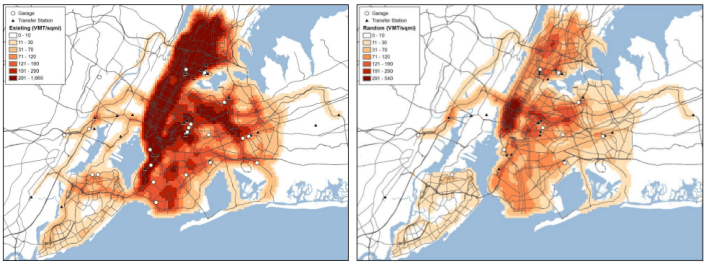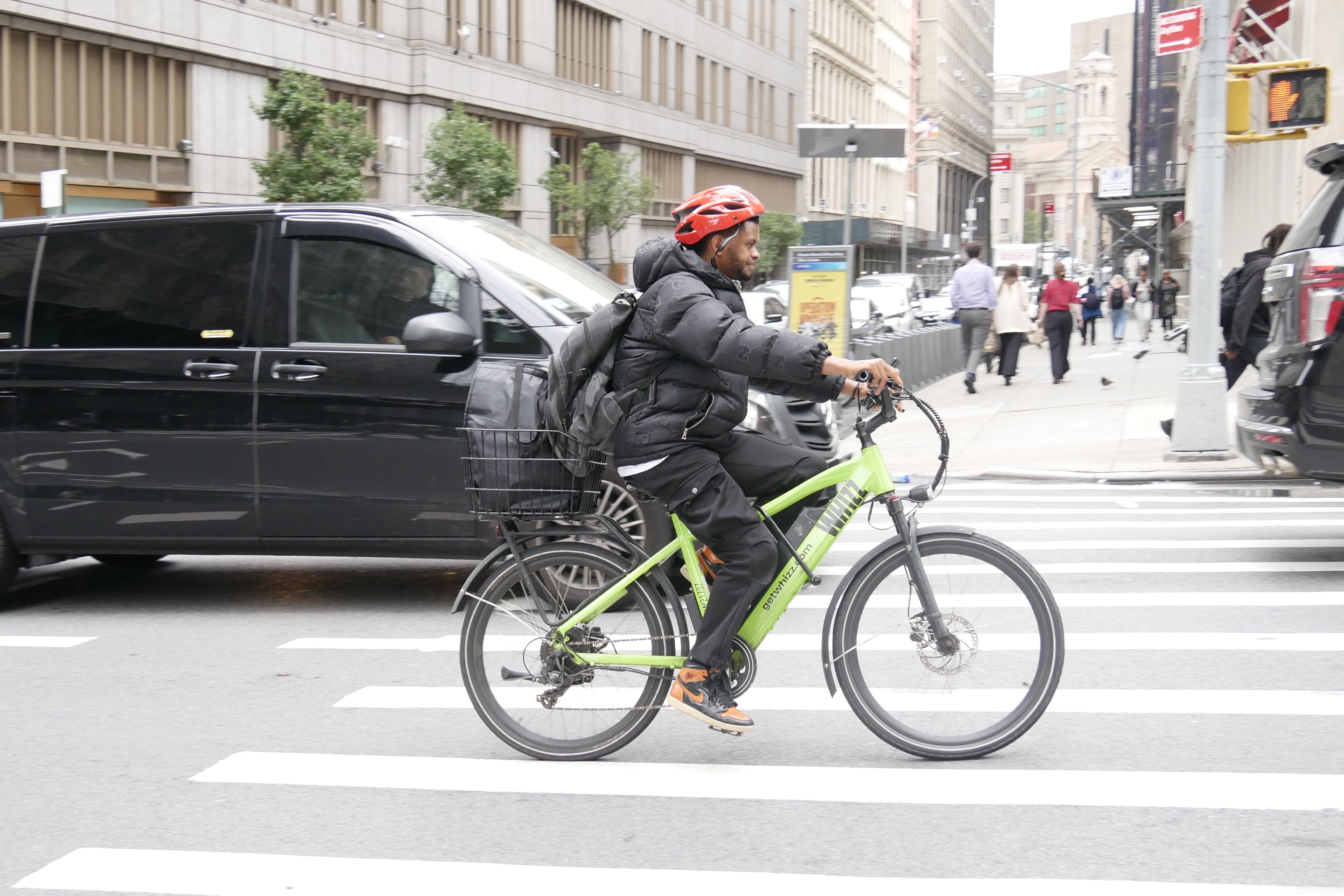
Reforming the city's commercial waste carting industry could reduce garbage truck traffic as much as 15 million miles each year, according to a new report from the Department of Sanitation and the Business Integrity Commission.
The truck traffic reductions would come from switching to a "zone-based" system for commercial trash collection, a transition that the de Blasio administration will pursue over the next two years, City Hall announced yesterday.
Currently, more than 250 private carting companies handle commercial waste hauling in New York City (as opposed to residential and government waste collection, which is handled by DSNY). The private carters contract with individual businesses, resulting in vast inefficiencies. It's not unusual for several companies to handle commercial trash collection on a single block, for instance.
All that geographic overlap means a lot of redundant truck mileage, with the burden felt most heavily in communities near transfer stations in the South Bronx, northern Brooklyn, and eastern Queens. The sprawling routes also create pressure on truck operators to drive dangerously to cover territory, according to a 2012 report prepared for DSNY [PDF].
In a zone-based system, companies would bid for contracts to handle all the commercial trash within defined areas. The Transform Don't Trash coalition has been advocating for zone-based waste collection as a way to reduce the environmental harm and safety hazards associated with the current system.
In its announcement yesterday, the de Blasio administration said switching to zone-based waste collection would be economically feasible and could reduce commercial waste carting mileage by 49 to 68 percent, or between 11.27 and 15.64 million miles each year. That would lead to a 42 to 64 percent reduction in greenhouse gas emissions and a 34 to 62 percent reduction in pollutants linked to asthma and other respiratory illnesses, according to the accompanying report.
The analysis of truck routes, conducted by Sam Schwartz Engineering [PDF], found that private trash haulers travel 23.1 million miles each year, including mileage in adjacent counties where garages and transfer stations are often located. Switching to a zone-based system would yield benefits in the form of reduced congestion, lower roadway maintenance needs, and less nighttime noise.
Reducing garbage truck mileage would also reduce exposure to dangerous traffic. Private trash haulers killed six people in New York City between 2010 and 2015, according to crash information compiled by Streetsblog.
A safety analysis released by City Hall yesterday, also conducted by Sam Schwartz Engineering, examined the 21 reported crashes involving private carters from 2010 through 2014 [PDF]. The number of reported crashes is not large, but the severity tends to be high, with 86 percent of the crashes causing injury or death. Crashes involving sanitation trucks are also likely underreported, the authors say, since every driver interviewed for the study indicated involvement in at least one minor crash.
With the release of the report, City Hall is now embarking on what it anticipates will be a two-year process to develop a detailed implementation plan for the zone-based collection system. Cities including San Jose, Seattle, and Los Angeles have already proven that such a system can work, and the administration has support from a number of labor and environmental groups, including Teamsters Joint Council 16, which represents the city's public and private sanitation workers.
To see the transition through, however, the de Blasio administration will have to tangle with the private carting industry, which has indicated its opposition to a zone-based system.





